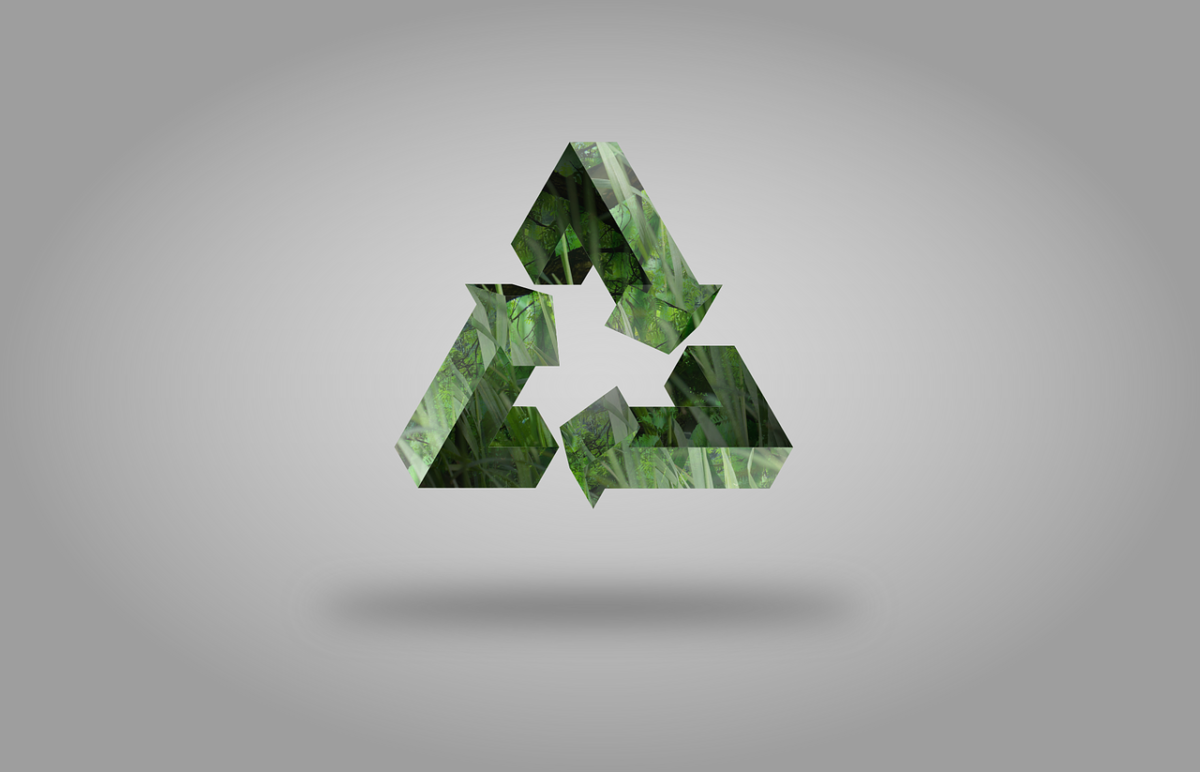
9 Ways To Become An Eco-Friendly Student!
- December 24, 2017
- Rebecca Miller
Every year, 300 million tonnes of plastic is produced across the world and more than 8 million tons of plastic are dumped in our oceans every year. Landfills are reaching maximum capacity. Turtles are dying from swallowing plastic bags and birds are trapped in rubbish thrown from ships. It’s been claimed that by 2050, there could be more plastic than fish in our oceans.
So how do we become more environmentally conscious?
“The simplest way to define ‘eco-friendly’ is the act of living with the intent. The intent is focused on not creating harm to environment and to prevent harm from occurring through your interactions with it.” – Conserve Energy Future
Being eco-friendly goes far beyond just turning off lights when you leave the room or separating your rubbish for recycling; it’s about changing the way you live.
Leading an environmentally friendly lifestyle at uni can be a challenge. But it’s important for our generation to take responsibility and protect our environment as best we can.
Here are our top tips to do your bit in saving and protecting our world!
Swap your shopping bags
It’s now law across the UK for all retail shops to charge 5p for a plastic carrier bag. This has been enforced to encourage shoppers to reduce the number of plastic bags bought and switch to using reusable ‘bags for life’ or canvas bags.
Eat less meat
Before you moan, hear us out! We’re not saying that you have to turn veggie or eat only ‘rabbit food’. By cutting down your meat consumption, you’ll be helping the environment in one of the most powerful ways you can. Research carried out in 2016 reported that ‘a widespread switch to vegetarianism would cut emissions by nearly two-thirds.’
Eating less meat could also reduce the need for dangerous fertilisers and pesticides, used to help produce the unnaturally large amount of feed necessary to meet meat-production demands.
While you’re encouraged to eat protein with meals to maintain a balanced healthy diet, there are plenty of sources of protein besides meat. In the last year, there has seen a surge in the promotion of #MeatFreeMonday asking people to swap their Monday night meal for a vegetarian alternative.
Don’t always buy new
As a society and our generation in particular, we are consumed by the desire to always buy new. Unfortunately, that’s not always the best option for the environment. Why not borrow books from the library instead of buying the hardcopy, or read digital versions of your course texts?
This also refers to your clothes. Why not make a charity shop swap with your usual high street store? There are some great secondhand clothes you can find in your local store, or why not attend a local vintage fair? And as a student, it’s pretty much your duty to wear second-hand clothes, so why not opt for quirky fashions and give back to charity?
If you’re fussy about your labels, hit the charity shops in upmarket locations to hunt for bargained designer items.
Bin the micro-beads
What are micro-beads?
They’re the little plastic beads often found in face and body scrubs, as well as some toothpastes.
Remember the huge media uproar when Jennifer Aniston was accused of endorsing leading beauty brand Aveeno’s products because they were laced with micro-beads? Well, research has found just how damaging these tiny pieces of plastic (up to 100,000 of which flow through the sewage system following a single use of product containing them) are to marine life.
Fear not! The UK government announced a ban on these minute plastic menaces earlier this year. But why not give yourself a head start and avoid all products containing them while they’re still being sold? If you’re really conscious about scrubbing your skin, you can buy an exfoliation glove, or even have a go at making your own scrubs using natural ingredients and sugar!
Ditch the paper – go digital
While most us millennials are sitting comfortably in the digital 21st century, some companies are yet to follow. Opt for paperless bills and download at your own leisure at home.
Also consider the mountain of takeaway leaflets and junk mail sitting somewhere near the front door of your student house. Recycling it is one thing, but minimise the amount of paper being wasted by leaving a little “No junk mail, please” sign on your postbox to bypass the build-up. It’s worth a try!
Buy local produce
Perhaps an obvious tip, but you’d be surprised how many of us choose larger supermarkets and produce sourced from overseas over the alternative.
It’s super easy to pop to the local supermarket and not even look to see where your food is sourced from. If you insist on shopping with the big giants, then choose your food from the delis and counters. These will all be sourced from within your local area and, although they might be slightly more expensive, you’re supporting and keeping local farmers in business, thus helping your community!
If you fancy a change and want to buy all your food locally grown, you’re helping to cut down on the emissions released into the atmosphere in order to bring products from around the world to your local supermarket.
Turn off the lights
Walking in at 3AM and all the lights are on? Or perhaps there’s one person who’s always demanding the heating be turned up? Sound familiar?
The best ways to conserve energy in your student house are probably just the same things you hear from your parents when you visit home. You may think they’re just being irritating, but they’re actually on to something. It’s so much better for the environment (and your wallet) if you take the time to implement some energy saving measures like turning the lights off in rooms you aren’t using.
Feeling chilly? Invest in a jumper.
Reduce water use
Similar to conserving energy, you should also be conscience of minimising water waste. Taking showers instead of baths, taking shorter showers instead of long ones, or even sharing baths. And don’t forget about turning the tap off when you’re brushing your teeth!
What may come as a surprise is that the most efficient way to do your washing up is in a fully-loaded dishwasher rather than by hand. Just remember – once the dishwasher is full and everything is cleaned, someone still has to empty it!
Recycle
With the majority of the UK familiar with recycling, it’s still an incredibly important step towards being eco-friendly.
Whether it’s plastics, clothes or even old books, it’s crucial you follow your council’s regulations on what can and cannot be recycled. It’s also vital that you take care, because the odd accidental crisp packet in your recycling box may cause an entire load to be rejected.
If you’re keen to find out more about protecting the environment and becoming more eco-friendly, check out The Woodland Trust and Greenpeace for lots of information and inspiration!
Rebecca Miller is a freelance multimedia journalist and graduate from Bournemouth University. You can check out her online portfolio here and find her on LinkedIn.
Inspiring Interns is an internship and graduate recruitment agency. To browse graduate jobs, click here. For senior digital and mobile jobs, please see Inspiring Search.







